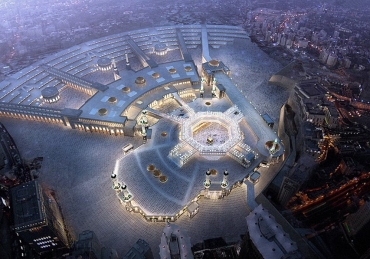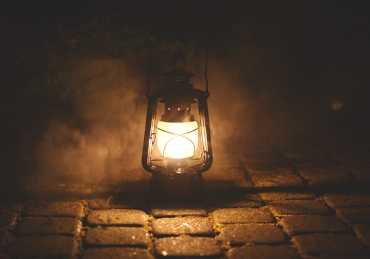Burying a deceased abroad
Question
I am aware that it is prohibited without a genuine need to transfer the body of a person who has passed away in the UK to another country, such as India or Pakistan. However, this is common practice in some communities. Please can you share some verses from the Qurʾān or Prophetic statements to encourage people to avoid this practice.
بسم الله الرحمن الرحیم
Answer
There are many reasons why the body of a deceased should not be transferred abroad for burial unless there is a justifiable reason.
(1) Firstly, it contravenes the emphasis Islam has laid on burying the deceased as soon as possible. Part of honouring a deceased is to arrange the burial as soon as possible (al-Madkhal, 3: 236). The following are some narrations that explain the importance of this:
- The Prophet ﷺ said, “Hurry up with the dead body for if it was righteous, you are forwarding it to good; and if it was otherwise, then you are putting off an evil thing from your necks” (Ṣaḥīḥ al-Bukhārī, 1315).
- The Prophet ﷺ said, “When a funeral is ready and the men carry the deceased on their necks, if it was pious then it will say, “Take me quickly”, and if it was not pious, then it will say, “Destruction to it (me), where are they taking it (me)?” And its voice is heard by everything except man and if he heard it he would fall unconscious” (Ṣaḥīḥ al-Bukhārī, 1316).
- The Prophet ﷺ said, “O ʿAlī [d. 40/661], do not delay three things: [1] Ṣalāh when its time begins [2] Janāzah [Ṣalāh] when the deceased is present [3] and the [marriage of a] woman when you find her a suitable match (Sunan al-Tirmidhī, 171).
- ʿUyaynah ibn ʿAbd al-Raḥmān (d. ca. 150/767) reports on the authority of his father that he attended the funeral of ʿUthmān ibn Abī al-ʿĀṣ (d. 50-1/670-1). He said: We were walking slowly. Abū Bakrah (d. 51-2/671-2) then joined us and he raised his stick at us and said: “Indeed, I have witnessed ourselves when we were with the Messenger of Allah ﷺ, we were walking quickly (Sunan Abū Dāwūd, 3182).
- Ḥasan al-Baṣrī (d. 110/728) said, “Rush with your deceased, and do not adopt the practice of the people of the book” (Muṣannaf ʿAbd al-Razzāq, 6248).
- ʿUrwah (d. 94/712-3) narrates that ʿAbd Allah ibn al-Zubayr (d. 73/692) would say when one of his family members would pass away, “Hurry, hurry, take [the body] out, take [the body] out”. ʿUrwah said, “The body would be taken out whatever time it would be (Muṣannaf Ibn Abī Shaybah, 12002).
- The mother of believers ʿĀʾishah (d. 58/678) said, “Abū Bakr [d. 13/634] passed away on the night of Tuesday and was buried on the night of Tuesday [during the same night) (Muṣannaf Ibn Abī Shaybah, 12003).
- ʿAbd Allah ibn Abī Mulaykah (d. 117/735-6) narrates that ʿAbd al-Raḥmān ibn Abī Bakr [d. 53/673-4] died in Ḥubshī [situated 12 miles from Makkah]. He said: He was carried to Makkah and was buried there. So when [his sister] ʿĀʾishah [d. 58/678] arrived she went to the grave of ʿAbd al-Raḥmān ibn Abī Bakr and said: “We were like two drinking companions of Jadhīmah for such a long time that they would say: They will never part. So when we were separated, it was as if I and Mālik, due to the length of staying together, never spent a night together.” Then she said, “By Allah, if I was present by you [when you passed away], I would not have buried you except where you had passed away, and if I was present by you [when you passed away], I would not have visited you [now]” (Sunan al-Tirmidhī, 1055).
The famous Ḥanafī jurist ʿAllāmah Sarakhsī (d. ca. 490/1097) writes that if the transfer of the body results in the delay of the burial by a few days, this is sufficient for it to be detestable (Sharḥ al-Siyar al-Kabīr, 1: 236).
(2) Secondly, our religion is simple and avoids extravagance and unnecessary costs. This is reflected in the simplicity of the Kafan, the cloth used to shroud the deceased. The cost of transporting the deceased abroad is at least a few thousand pounds. Spending this money without a valid Islamic basis is not permissible. Allah Almighty says, “Do be not extravagant, surely He does not like the extravagant” (Qurʾān, 7: 31). Instead, the deceased would benefit if these funds are utilised for charitable projects on behalf of the deceased. The reward of this would reach and benefit the deceased as mentioned in various narrations (Ṣaḥīḥ Muslim, 1631). If we are truly concerned about our beloved family members, Ṣadaqah is one of the most effective ways of benefiting them.
(3) Thirdly, many people believe that there is some virtue or significance attached to burying a deceased in their birth place or place of origin or with their forefathers. There is no basis for this belief. It is therefore necessary to challenge this belief by avoiding this practice and encouraging others to avoid it.
It is worth noting that there is virtue attached to passing away and being buried in the blessed city of Madīnah, as affirmed in various narrations (Ṣaḥīḥ al-Bukhārī, 1890; Muwaṭṭaʾ, 1678; Sunan al-Tirmidhī, 3917). However, in the time of the Prophet ﷺ and the time of the companions, the general practice was to bury the deceased in the location where they passed away. This includes the martyrs who were buried in Uḥud and not in the graveyard of Baqīʿ. Many companions passed away in the surrounding regions of Makkah and Madīnah but their bodies were not brought to Makkah or Madīnah for burial. For example, the mother of believers, Maymūnah (d. 51/671-2) passed away in a place known as Sarif, approximately ten miles from Makkah. She was buried in Sarif and not in the blessed city of Makkah. Similarly, we find that there are many graves of the companions all over the world. Their bodies were not transported back to Makkah or Madīnah or the capitals of the Muslim world. It is worth noting that according to one narration from Imām Shāfiʿī (d. 204/820), if a person passes away in close proximity to Makkah or Madīnah or al-Quds, it is desirable for the body to be transferred there (Rawḍah al-Ṭālibīn, 2: 143). However, the statement of the mother of believers ʿĀʾishah (d. 58/678) regarding the burial of her brother whose body was transported to Makkah and the general practice of the Muslims suggests that it is preferable for the deceased to be buried in the location of their death.
(4) Fourthly, it is a legal requirement in many countries to embalm the body before transportation. The embalmment process consists of four stages. This includes the corpse undergoing treatment and being filled with chemical preservatives including alcoholic solvents. This process, again without a valid reason, is prohibited and violates the sanctity of a deceased person. In addition to this, much of the deceased’s body is kept uncovered during this process. This again, without a valid reason, violates the sanctity of the deceased which contravenes Islamic teachings. The Prophet ﷺ has affirmed the importance of honouring and respecting the sanctity of a deceased person as reflected in the following ḥadīth, “Breaking the bones of the deceased is like breaking his bones when he is alive” (Sunan al-Tirmidhī, 3207, Sunan Ibn Mājah, 1616).
Finally, it is worth noting that transferring the body within a region is permissible if there is a need to do so although ʿAllāmah Sarakhsī (d. ca. 490/1097) has specified that the distance should not exceed one or two miles (Radd al-Muḥtār, 6: 428; Sharḥ al-Siyar al-Kabīr, 1: 236; Fatāwā Farīdiyyah, 3: 284; Fatāwā Maḥmūdiyyah, 13: 259). Other scholars have permitted this on the condition that the sanctity of the corpse is not violated and that it does not start to emit odour (al-Furūʿ, 3: 327; Ḥāshiyah al-Dasūqī, 4: 165).
In conclusion, it is prohibited in the absence of a valid reason to transfer the body of a deceased person from the UK to another country, such as India or Pakistan.
Allah knows best
Yusuf Shabbir
26 Rabīʿ al-Awwal 1437 / 7 January 2016
Approved by: Mufti Shabbir Ahmad Sahib







